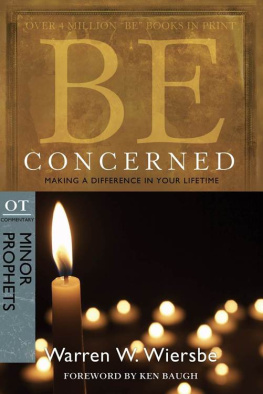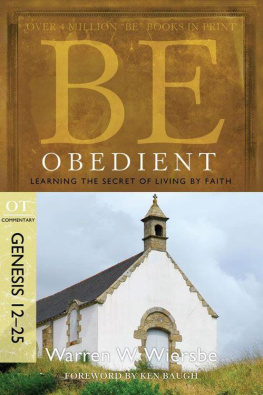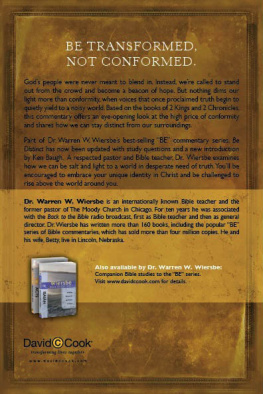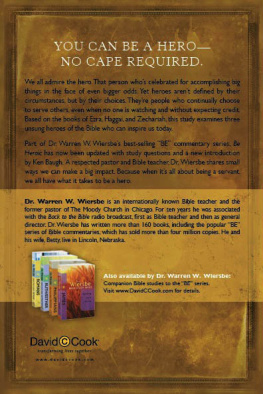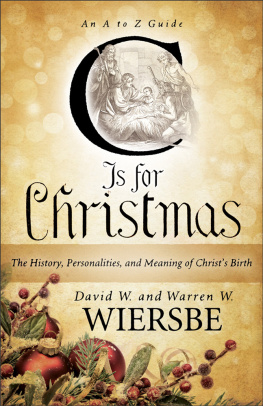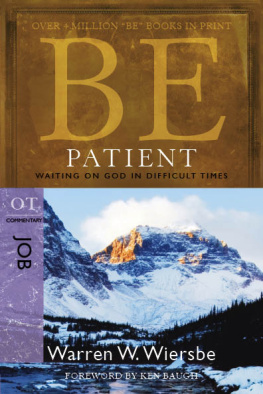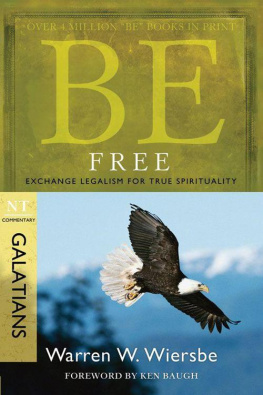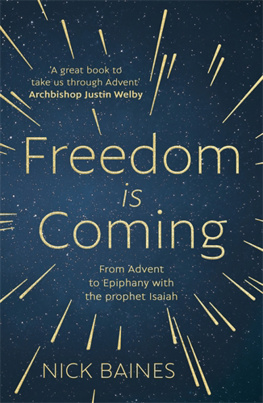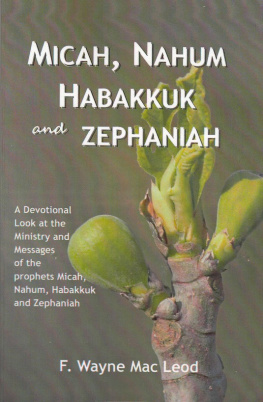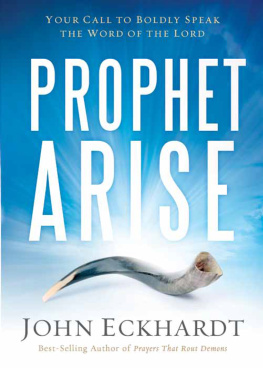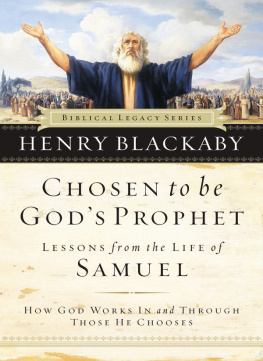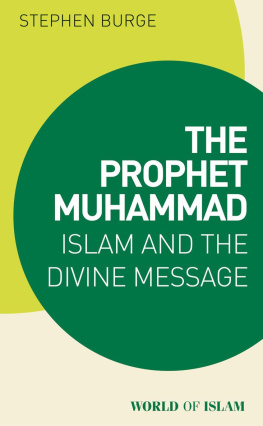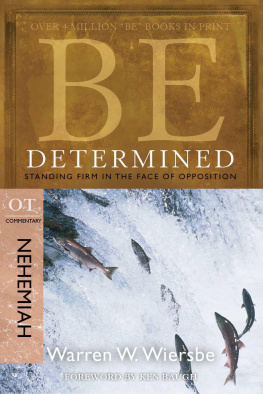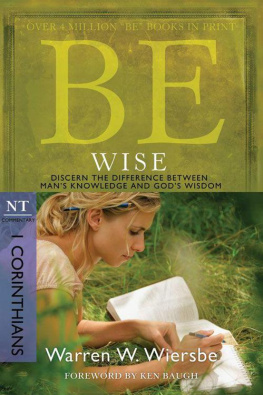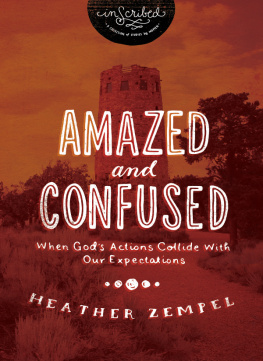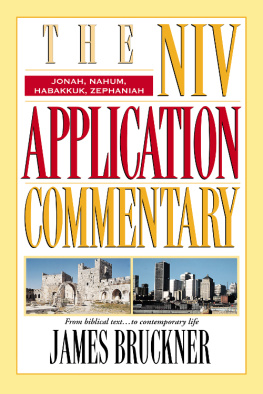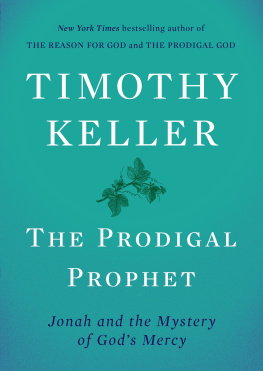Contents
The Big Idea
An Introduction to Be Concerned
by Ken Baugh
Once every three months or so we have a newcomer meeting at the church where I serve as pastor, and normally twenty-five to thirty people attend who dont know each other at all. I begin the meeting by suggesting that we go around the room and have each person share with the others their worst sinyou know, to help us get to know you a little better. Usually everyone laughs, and the joke serves as a good icebreaker.
But we all know that sin is no laughing matter, dont we? And none of us would want to go around a room filled with even our closest friends, let alone strangers, and truly share our worst sins. We dont share our sins with others. Instead, we hide themwe lock them up deep within the confines of our hearts. We even think we can hide our sins from God, which is silly if you stop and think about it, because God knows everythingeven the secret sins of the heart. God sees every sin and knows every evil thought and yet stays His hand of judgment and discipline for a season, offering us the opportunity to repent.
But when Gods people dont repent, He must bring about discipline, sometimes severe, in order to bring them to repentance. This is the ongoing narrative that runs throughout the Old Testament: Gods people sin, God brings about His discipline in the form of judgment, Gods people repent, and then God is faithful to forgive and restore. We see this pattern played out over and over again in the lives of the Israelites.
The prophets are Gods messengers who deliver the bad news of coming judgment for sin. They warn, Be concerned, people, because God sees your sins, and His judgment is coming if you dont repent. This is the message of the prophets and is the Big Idea woven throughout the books of Amos, Obadiah, Micah, and Zephaniah. Their twofold message is an admonition of coming judgment and the willingness of God to forgive.
Here is the truth about sin: It is always followed by consequences. At the bottom of every temptation to sin, there is written in fine print: Warning, God is a holy God and therefore must discipline His people when they sin. Boy, do I know all about that.
When I was seventeen years old, I began a four-year binge on sin. It began innocently enough when I decided to date an unbeliever. I blew off the whole unequally yoked thing (2 Cor. 6:14), thinking that I would be the one to beat the odds. I set out on a missionary dating campaign with the best intentions to win her to Christ. However, over time, my girlfriend lost interest in the faith in spite of my best efforts, and I began to compromise my biblical values. That relationship ended after a couple of years, but my downward spiral into sin continued. As the years progressed, so did my sin of promiscuity, until one day I came face-to-face with a severe consequence: an unplanned pregnancy terminated by abortion. Here is the ugly truth about me: I am the accomplice to the murder of an unborn child. As I sit here and write these words, it is still hard for me to believe.
A few days after the abortion, I was sitting on the beach asking myself how I got into this pit of sin, and I cried out to God for His forgiveness. God forgave me the moment I confessed my sin (1 John 1:9), but the consequences linger even to this day, some twenty-five years later, and no doubt will remain for the rest of my life. Its true that I am free from the guilt, shame, and condemnation of my sin (Rom. 8:1), but its also true that my sin left deep emotional scars of regret that remind me that I am simply a man saved by grace.
I guess I have shared with you my worst sin after all, just as the prophets Amos, Obadiah, Micah, and Zephaniah share with us the worst sins of the Israelites. But as you read through these books, dont miss Gods promise to His people (and to you): Even though they have sinned, forgiveness and restoration are only a prayer away. I dont know if you have ever shared your worst sin with someone, but I urge you to share it at least with God through a prayer of confession. Ask Him to forgive you, ask Him to cleanse you, and tell Him you are sorry and desire to walk in newness of life. God promises to hear the prayer of a broken and contrite heart (Ps. 51:17 NIV ). He promises to forgive your sin, restore your relationship with Him, and provide the strength to endure whatever consequences ensue.
***
Dr. Wiersbes commentaries have been a source of guidance and strength to me over the many years that I have been a pastor. His unique style is not overly academic, but theologically sound. He explains the deep truths of Scripture in a way that everyone can understand and apply. Whether youre a Bible scholar or a brand-new believer in Christ, you will benefit, as I have, from Warrens insights. With your Bible in one hand and Dr. Wiersbes commentary in the other, you will be able to accurately unpack the deep truths of Gods Word and learn how to apply them to your life.
Drink deeply, my friend, of the truths of Gods Word, for in them you will find Jesus Christ, and there is freedom, peace, assurance, and joy.
Ken Baugh
Pastor of Coast Hills Community Church
Aliso Viejo, California
A W ORD FROM THE
A UTHOR
This is one of three volumes of the Minor Prophets in the BE series, dealing with Amos, Obadiah, Micah, and Zephaniah. The first volume, Be Amazed, covers Hosea, Joel, Jonah, Nahum, Habakkuk, and Malachi; and the other volume, Be Heroic, covers the post-exilic prophetsHaggai and Zechariahalong with the book of Ezra.
The Minor Prophets may be minor in size, as compared with Isaiah, Jeremiah, and Ezekiel, but they certainly arent minor in their message. These men dealt courageously with the sins of Gods people, warning them that chastening judgments would come if the people didnt repent and turn to God. But they were also tenderhearted in their message of forgiveness and hope.
In the words of Paul, these prophets proclaimed the goodness and severity of God (Rom. 11:22), a balanced message that we need to hear today. In our pluralistic society, some preachers and teachers try so hard to be politically correct that they end up with no message at all, while others fail to understand the mind-set of their hearers and fail to get through. The prophets made neither mistake; and we can learn from them how best to declare Gods truth so that the message reaches the mind and heart of each listener and motivates the will.
Having heard these messages, we need to act upon them and obey what God tells us to do. The great need of the hour is for the company of the concerned to follow Christ and accomplish His will in this needy world. Will you be among them?
Warren W. Wiersbe
Amos in His Time
Amos (burden bearer) was a herdsman and a cultivator of sycamore trees (Amos 1:1; 7:14) when the Lord called him to be a prophet. He lived in the village of Tekoa, about eleven miles from Jerusalem, during the reigns of Uzziah in Judah (790740 BC) and Jeroboam II in the northern kingdom of Israel (793753). Amos was a layman, a humble farmer and shepherd who was not an official member of the Jewish religious or political establishment.
At this time, both Judah and Israel were enjoying prosperity and security. Luxury abounded (3:1015; 5:16), and religion was popular. Israel flocked to the royal chapel at Bethel (4:45), and Judah celebrated the feasts enthusiastically (5:2122), but the sins of both nations were eroding the religious and moral fiber of the people. Making money was more important than worshipping God (8:5); the rich exploited the poor, the judicial system was corrupt, and injustice flourished (5:1115; 8:46).

